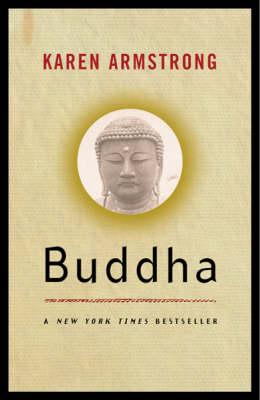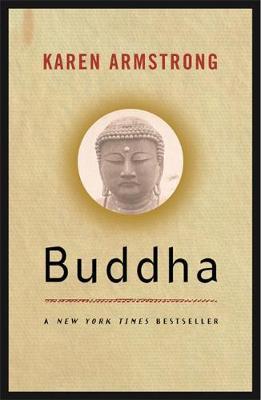Buddha
Buddha
All that is known about Buddha comes from a collection of ancient writings that fuse history, biography and myth. Karen Armstrong distils from these the key events of Buddha's life: his birth as Siddhartha Gotama in the fifth century BC and his abandonment of his wife and son; his attainment of enlightenment under the Banyan tree (the moment he became a buddha, or enlightened one; his political influence; the divisions among his followers; and his serene death. Armstrong also introduces the key tenets of Buddhism: she explains the doctrine of anatta (no-soul) and the concepts of kamma (actions), samsara (keeping going), dhamma (a law or teaching that reflects the fundamental principles of existence) and the idealised state of nibbana (literally the 'cooling of the ego'). Since it promotes no personal god, Buddhism, writes Armstrong, 'is essentially a psychological faith'. In our own age of secular anxiety, she shows that it has profound lessons to teach about selflessness and the simple life.
Karen Armstrong's short book is a magnificent introduction to the life and thought of this most influential of spiritual thinkers.
PRP: 71.93 Lei
Acesta este Prețul Recomandat de Producător. Prețul de vânzare al produsului este afișat mai jos.
64.74Lei
64.74Lei
71.93 LeiLivrare in 2-4 saptamani
Descrierea produsului
All that is known about Buddha comes from a collection of ancient writings that fuse history, biography and myth. Karen Armstrong distils from these the key events of Buddha's life: his birth as Siddhartha Gotama in the fifth century BC and his abandonment of his wife and son; his attainment of enlightenment under the Banyan tree (the moment he became a buddha, or enlightened one; his political influence; the divisions among his followers; and his serene death. Armstrong also introduces the key tenets of Buddhism: she explains the doctrine of anatta (no-soul) and the concepts of kamma (actions), samsara (keeping going), dhamma (a law or teaching that reflects the fundamental principles of existence) and the idealised state of nibbana (literally the 'cooling of the ego'). Since it promotes no personal god, Buddhism, writes Armstrong, 'is essentially a psychological faith'. In our own age of secular anxiety, she shows that it has profound lessons to teach about selflessness and the simple life.
Karen Armstrong's short book is a magnificent introduction to the life and thought of this most influential of spiritual thinkers.
Detaliile produsului














